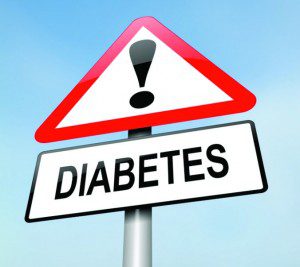By W.L. “Hunter” Huntley, III, HAS, BC-HIS
 According to the American Diabetes Association (ADA) and the National Institute of Health (NIH), diabetics are 2 times more susceptible to contract hearing loss than those without the disease. Of the 79 million adults thought to have pre-diabetes, the rate of hearing loss is 30% higher than those with normal blood sugar.
According to the American Diabetes Association (ADA) and the National Institute of Health (NIH), diabetics are 2 times more susceptible to contract hearing loss than those without the disease. Of the 79 million adults thought to have pre-diabetes, the rate of hearing loss is 30% higher than those with normal blood sugar.
Diabetes affects approximately 11% of the adult U.S. population; about 40% of whom are undiagnosed. In a study done by the NIH published in the Annals of Internal Medicine, researchers analyzed data from hearing tests of adults between the ages of 20 and 69. They concluded that diabetes may contribute to hearing loss by damaging nerves and blood vessels in the inner ear. There is still work to be done to find more data.
Hearing loss can be so gradual that you may not notice it. Children and adults can experience hearing loss at any time. Don’t think that you are too young to be losing your hearing.
Ask yourself the following questions if you think you might be at risk for hearing loss:
• Do you ask for questions, statements, or directions to be repeated?
• Have your friends or family members complained that you’re not listening?
• Do you complain that people are mumbling?
• Do you have problems following conversations with more than one person?
• Have people told you that you listen to the television or radio too loudly?
• Do you have trouble understanding conversations in crowded rooms or loud or busy restaurants?
If you answered yes to more than one of those questions, you should have your hearing evaluated immediately to assess the existing loss and prevent further damage.
Untreated hearing loss can lead to brain atrophy. Brain atrophy is the loss or damage to brain cells. Since there is no treatment available to cure this complication, this means that the illness must be prevented with the use of hearing instruments and a healthy active lifestyle.
This shows just more reason why treating hearing loss should not be overlooked or ignored. Hearing device technology has drastically improved over the last few years. Individuals with hearing loss can find a hearing solution that best fits their daily activities easily.
For a FREE (no obligation) hearing evaluation, CALL TODAY 997-8288 to schedule an appointment.










